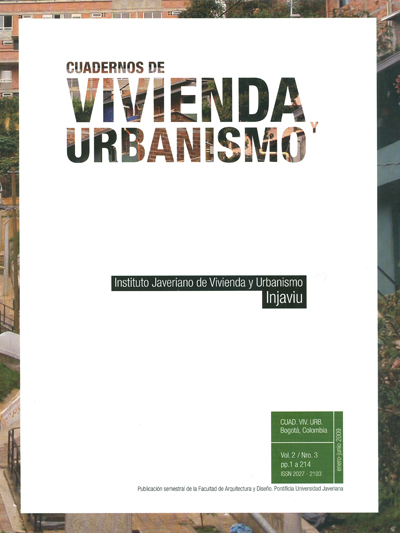Resumen
Frente al propósito de disminución del déficit habitacional del país, la figura del arrendamiento cobra importancia como herramienta que, además de contribuir de manera directa a su disminu-ción, puede llegar a constituir una opción de inversión rentable. Adicionalmente, en un contexto caracterizado por limitaciones fiscales del estado, precariedades de las viviendas existentes, difi-cultades en el acceso a créditos hipotecarios e ineficiencia en la gestión urbana, entre otras, el arrendamiento se convierte en una alternativa de solución habitacional, en el corto plazo, para los hogares más pobres.
Por lo anterior, la investigación adelantada responde a la necesidad de caracterizar el mercado de arrendamiento urbano, enfocado en el segmento de población más pobre. Buscando identificar las posibilidades de articular estos mercados en un marco formal que posibilite su interrelación con instrumentos financieros que apalanquen la oferta de vivienda en arriendo, para los estratos bajos de la población.
Esta revista científica se encuentra registrada bajo la licencia Creative Commons Reconocimiento 4.0 Internacional. Por lo tanto, esta obra se puede reproducir, distribuir y comunicar públicamente en formato digital, siempre que se reconozca el nombre de los autores y a la Pontificia Universidad Javeriana. Se permite citar, adaptar, transformar, autoarchivar, republicar y crear a partir del material, para cualquier finalidad (incluso comercial), siempre que se reconozca adecuadamente la autoría, se proporcione un enlace a la obra original y se indique si se han realizado cambios. La Pontificia Universidad Javeriana no retiene los derechos sobre las obras publicadas y los contenidos son responsabilidad exclusiva de los autores, quienes conservan sus derechos morales, intelectuales, de privacidad y publicidad.
El aval sobre la intervención de la obra (revisión, corrección de estilo, traducción, diagramación) y su posterior divulgación se otorga mediante una licencia de uso y no a través de una cesión de derechos, lo que representa que la revista y la Pontificia Universidad Javeriana se eximen de cualquier responsabilidad que se pueda derivar de una mala práctica ética por parte de los autores. En consecuencia de la protección brindada por la licencia de uso, la revista no se encuentra en la obligación de publicar retractaciones o modificar la información ya publicada, a no ser que la errata surja del proceso de gestión editorial. La publicación de contenidos en esta revista no representa regalías para los contribuyentes.


